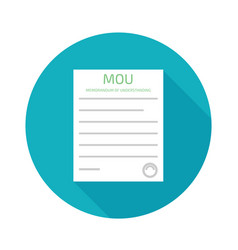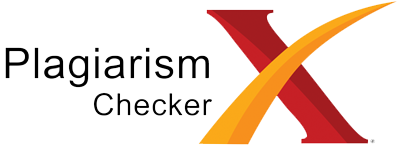Chemistry Storytelling with AI: A Descriptive Research of Ebook Creation for Grade 10 Students
Abstract
Abstrak
Mengajarkan senyawa kimia secara menarik itu cukup menantang karena kompleksitas materi dan sulitnya mengkontekstualisasi berbagai unsur kimia dalam kehidupan sehari-hari. Penelitian ini mengeksplorasi penggunaan alat AI dan metode bercerita untuk merancang pembelajaran kimia yang menarik bagi siswa kelas sepuluh. Penelitian ini dilakukan di Bandung Alliance Intercultural School, melibatkan lima belas siswa yang membuat ebook untuk mengajarkan senyawa kimia kepada siswa kelas dua. Data dikumpulkan melalui observasi dan penilaian rubrik. Alat AI seperti ChatGPT, Gemini, dan CanvaAI digunakan untuk mencari ide cerita, mengembangkan alur cerita, dan membuat gambar. Intervensi dari siswa diperlukan untuk memastikan kontennya sesuai usia dan menarik. Sifat kolaboratif proyek ini mendorong kepemilikan dan keterlibatan siswa. Temuan menunjukkan bahwa metode bercerita yang diperkaya dengan AI dapat membuat pelajaran kimia lebih interaktif dan relevan. Sayangnya, generalisasi hasil penelitian ini terbatas karena dilakukan di satu sekolah saja. Penelitian selanjutnya harus mereplikasi metode ini di lingkungan pendidikan yang beragam dan menggunakan desain eksperimental untuk mengukur efektivitas AI dan metode bercerita dalam pendidikan kimia.
Keywords
Full Text:
PDFReferences
Ahyar, A., Fitriati, I., Nurgufriani, A., & Syarifudin, S. (2023). Pengembangan E-Book Berbasis Model TaRL (Teaching at The Rigth Level) sebagai Bahan Ajar dalam Pembelajaran Literasi Dasar Membaca di Sekolah Dasar. JKTP: Jurnal Kajian Teknologi Pendidikan, 6(4), 241. https://doi.org/10.17977/um038v6i42023p241
Almasri, F. (2024). Exploring the Impact of Artificial Intelligence in Teaching and Learning of Science: A Systematic Review of Empirical Research. Research in Science Education. https://doi.org/10.1007/s11165-024-10176-3
Byusa, E., Kampire, E., & Mwesigye, A. R. (2021). A case study on chemistry classroom practices in the Rwandan secondary schools. Heliyon, 7(6). https://doi.org/10.1016/j.heliyon.2021.e07352
Conley, A. (2024). Legal Education’s Role in Combating Automation Bias and Complacency with Generative AI in the Practice of Law (SSRN Scholarly Paper 4778017). https://doi.org/10.2139/ssrn.4778017
Daher, W., Diab, H., & Rayan, A. (2023). Artificial Intelligence Generative Tools and Conceptual Knowledge in Problem Solving in Chemistry. Information, 14(7), 409. https://doi.org/10.3390/info14070409
Fajjriah, N., Atiqoh, A., & Hartono, H. (2023). Pengembangan E-Modul Ajar Informatika Untuk Meningkatkan Minat Belajar Dasar Program Keahlian SMK. JKTP: Jurnal Kajian Teknologi Pendidikan, 6(4), 218. https://doi.org/10.17977/um038v6i42023p218
Fang, X., Ng, D. T. K., Leung, J. K. L., & Chu, S. K. W. (2023). A systematic review of artificial intelligence technologies used for story writing. Education and Information Technologies, 28(11), 14361–14397. https://doi.org/10.1007/s10639-023-11741-5
Hu, K. (2023, February 2). ChatGPT sets record for fastest-growing user base—Analyst note. Reuters. https://www.reuters.com/technology/chatgpt-sets-record-fastest-growing-user-base-analyst-note-2023-02-01/
Iyamuremye, A., & Ndihokubwayo, K. (2024). Exploring Secondary School Students’ Interest and Mastery of Atomic Structure and Chemical Bonding through ChatGPT. Educational Journal of Artificial Intelligence and Machine Learning, 1(1), 1–13. https://doi.org/10.58197/prbl/9hk37296
Kamal, Z. S. M. (2024). The availability of concepts and applications of artificial intelligence in the content of the chemistry textbook for the fourth scientific grade. International Journal of Literacy and Education, 4(1), 119–123. https://doi.org/10.22271/27891607.2024.v4.i1b.176
Kılınç, S. (2023). Embracing the Future of Distance Science Education: Opportunities and Challenges of ChatGPT Integration. Asian Journal of Distance Education, 18(1), Article 1. https://www.asianjde.com/ojs/index.php/AsianJDE/article/view/721
Ma, Y. (2022). On the Relationship Between English as a Foreign Language Learners’ Positive Affectivity, Academic Disengagement, and Communication Apprehension. Frontiers in Psychology, 12. https://doi.org/10.3389/fpsyg.2021.828873
Mustofa, H. A., Bilad, M. R., & Grendis, N. W. B. (2024). Utilizing AI for Physics Problem Solving: A Literature Review and ChatGPT Experience. Lensa: Jurnal Kependidikan Fisika, 12(1), 78–97. https://doi.org/10.33394/j-lkf.v12i1.11748
Ng, D. T. K., Luo, W., Chan, H. M. Y., & Chu, S. K. W. (2022). Using digital story writing as a pedagogy to develop AI literacy among primary students. Computers and Education: Artificial Intelligence, 3, 100054. https://doi.org/10.1016/j.caeai.2022.100054
NGSS Lead States. (2013). HS-PS1-2 Matter and its Interactions | Next Generation Science Standards. https://www.nextgenscience.org/pe/hs-ps1-2-matter-and-its-interactions
Nja, C. O., Uwe, U. E., & Nkereuwem, V. I. (2024). Artificial Intelligence Tools of Personalized Learning and Intelligent Tutoring System as Correlates of Students Motivation in Chemistry. African Journal of Science, Technology and Mathematics Education, 10(1), 27–32.
Nugraha, C. A. (2024a, August 1). The Chem Equation. Open Science Framework. https://osf.io/tgw95
Nugraha, C. A. (2024b, August 1). The Elementville. Open Science Framework. https://osf.io/jz2fr
Nugraha, C. A. (2024c, August 1). Using AI for Chemistry Storytelling: A Descriptive Study of E-Book Creation for Grade 10 Students. OSF. https://osf.io/tnbwq/
Pernaa, J., Ikävalko, T., Takala, A., Vuorio, E., Pesonen, R., & ... (2024). Artificial Intelligence Chatbots in Chemical Information Seeking: Narrative Educational Insights via a SWOT Analysis. Informatics, 11(2). https://doi.org/10.3390/informatics11020020
Piaget, J. (1964). Part I: Cognitive development in children: Piaget development and learning. Journal of Research in Science Teaching, 2(3), 176–186. https://doi.org/10.1002/tea.3660020306
Prameswari, J., Praherdhiono, H., & Husna, A. (2022). E-Book Berbasis Elaborasi Gambar Sebagai Penguatan Kognitif Siswa. JKTP: Jurnal Kajian Teknologi Pendidikan, 5(4), 423. https://doi.org/10.17977/um038v5i42022p423
Takerngsaksiri, W., Warusavitarne, C., Yaacoub, C., Hou, M. H. K., & Tantithamthavorn, C. (2024). Students’ Perspective on AI Code Completion: Benefits and Challenges (arXiv:2311.00177). arXiv. https://doi.org/10.48550/arXiv.2311.00177
Tassoti, S. (2024). Assessment of Students Use of Generative Artificial Intelligence: Prompting Strategies and Prompt Engineering in Chemistry Education. Journal of Chemical Education. https://doi.org/10.1021/acs.jchemed.4c00212
Team, M. E. (2024, April 25). Explore insights from the AI in Education Report. Microsoft Education Blog. https://www.microsoft.com/en-us/education/blog/2024/04/explore-insights-from-the-ai-in-education-report/
Wei, J., Wang, X., Schuurmans, D., Bosma, M., Ichter, B., Xia, F., Chi, E., Le, Q., & Zhou, D. (2023). Chain-of-Thought Prompting Elicits Reasoning in Large Language Models (arXiv:2201.11903). arXiv. https://doi.org/10.48550/arXiv.2201.11903
Westbroek, H., Klaassen, K., Bulte, A., & Pilot, A. (2005). Characteristics of Meaningful Chemistry Education. In K. Boersma, M. Goedhart, O. de Jong, & H. Eijkelhof (Eds.), Research and the Quality of Science Education (pp. 67–76). Springer Netherlands. https://doi.org/10.1007/1-4020-3673-6_6
Wohlfart, O., Wagner, A., & Wagner, I. (2023). Digital tools in secondary chemistry education–added value or modern gimmicks? Frontiers in Education, 8(1197296). https://doi.org/10.3389/feduc.2023.1197296
Yik, B. J., & Dood, A. J. (2024). ChatGPT Convincingly Explains Organic Chemistry Reaction Mechanisms Slightly Inaccurately with High Levels of Explanation Sophistication. Journal of Chemical Education, 101(5). https://doi.org/10.1021/acs.jchemed.4c00235
Zhang, Y., Yang, X., Sun, X., & Kaiser, G. (2023). The reciprocal relationship among Chinese senior secondary students’ intrinsic and extrinsic motivation and cognitive engagement in learning mathematics: A three-wave longitudinal study. ZDM – Mathematics Education, 55(2), 399–412. https://doi.org/10.1007/s11858-022-01465-0
DOI: http://dx.doi.org/10.17977/um038v7i32024p149
Refbacks
Copyright (c) 2024 Christophorus Ardi Nugraha, Rita Jhon Harsono

This work is licensed under a Creative Commons Attribution-ShareAlike 4.0 International License.
JKTP: Jurnal Kajian Teknologi Pendidikan published by Department of Educational Technology, Faculty of Education, State University of Malang in Collaboration with Asosiasi Program Studi Teknologi Pendidikan Indonesia (APS TPI).
Publisher Address:
Lab. Teknologi Pendidikan, Gd.E2, Lt.1
Fakultas Ilmu Pendidikan Universitas Negeri Malang
Jl. Semarang 5, Kota Malang Email: jktp.fip@um.ac.id
========================================================================================================
| INDEXED BY | TOOLS | PLAGIARISM CHECK | ARTICLE TEMPLATE |
|
|

JKTP: Jurnal Kajian Teknologi Pendidikan is licensed under a Creative Commons Attribution-ShareAlike 4.0 International License.
JKTP Statistics (Since July 13th, 2020)






.png)












